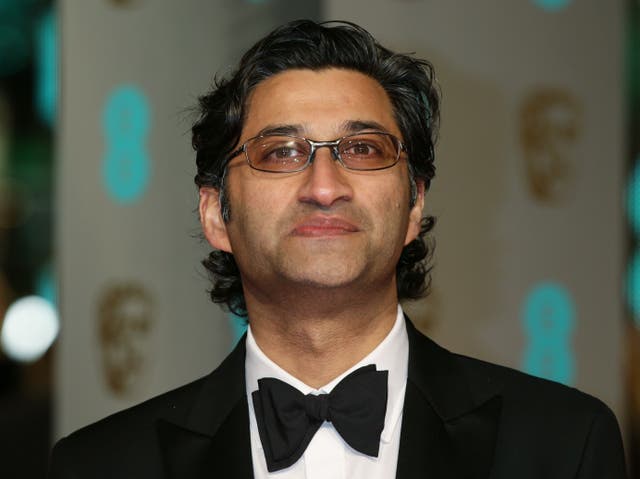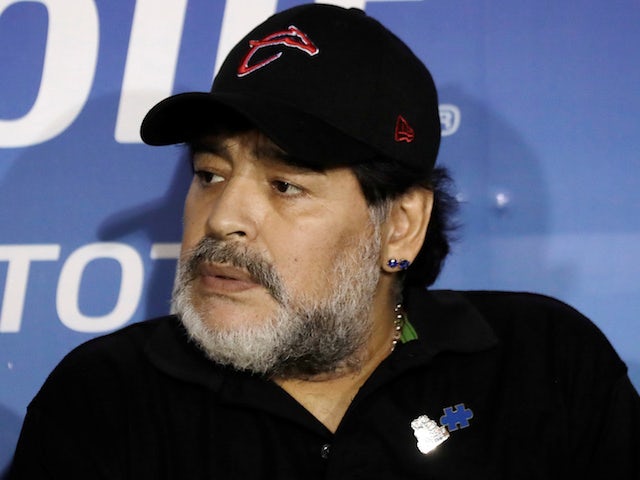The director of the new Diego Maradona documentary admits he was driven to discover why the Argentinian is still "creating chaos" in his late 50s.
Asif Kapadia views the Maradona project almost as the final instalment of a "trilogy" on flawed genius – with Formula One driver Ayrton Senna and singer Amy Winehouse the subjects of parts one and two.
The difference with Maradona, as Kapadia saw it, was the chance to explore what becomes of such a uniquely talented individual when their life is not cut short.
"It became an idea of, what happens if you get old and you've got this amazing gift?" he told the Press Association.
"Also, I suppose there was a question of, why is he doing the things that he's doing? Why is he still creating chaos?
"I really enjoyed watching Amy and Senna on a big screen with an audience, quite collective emotions and experiences.
"I thought, I'd love to see this in Argentina with a crowd, or Naples with a crowd, or even in England. So partly it was that, in doing it as a movie about another big name who gets old, who we try to understand, because he's not necessarily very loveable and likeable when you think about him.
"And I didn't know what the story was going to be, I didn't know whether or not I'd like him, even. It's actually happened along the way."
🗓 29 June 1986 A day that Diego Maradona will never forget – the day that he captained his side to FIFA #WorldCup glory 🇦🇷 🏆 Full video 👉 https://t.co/9XU2OSOy1N pic.twitter.com/3iJvmt5AuT — FIFA World Cup (@FIFAWorldCup) May 9, 2018
The documentary, which is released on June 14, focuses primarily on Maradona's time at Napoli, where he led the hitherto down-at-heel Italian club to two national league titles in 1987 and 1990.
It was a time when the 1986 World Cup winner's cocaine addiction escalated, and when he began to associate with members of the region's notorious organised crime underworld.
Few players have polarised opinion like Maradona, who is a hero or a cheat depending on who you ask, but Kapadia says for him and his generation there is no one who comes close, however unlikely a sporting superstar he may be to look at.
"He won the World Cup and everyone says it's the greatest single player's achievement in one tournament, no one has ever done anything ever since like that," Kapadia added.

"It's a team game, it's not really meant to be about individuals. But he made the team better.
"And then he goes to this team in Italy that's never won anything, ever, never won anything since, and won, in the toughest league in the world, there's probably never been a league as difficult as that ever, before or since, and he won, twice.
"So then when you weigh that up and you look at the type of football and the way he was treated and his body shape, I mean he doesn't even really look an athlete. I look at him and go, how can he be?
#OnThisDay: #Bologna 🆚 #Napoli 📆 22/4/90⚽ #Careca⚽ #Maradona⚽ #Francini ⚽ #Alemao pic.twitter.com/oWxzbOf3tZ — Official SSC Napoli (@en_sscnapoli) April 22, 2018
"He just doesn't look like someone who should be able to run or do anything. But he was amazing."
Maradona was one of the first players who made enough money from the game and his various endorsements to never need to work again, with top stars now earning around £500,000 a week.
Kapadia insists the fragile nature of a footballer's career means they have every right to earn as much money from their 'art' as they can, while they can.
He added: "I have no problem with them earning as much as they can, I think they deserve it. They're the artists at the heart of it, (and) their career could end tomorrow."
ga('create', 'UA-72310761-1', 'auto', {'name': 'pacontentapi'});
ga('pacontentapi.set', 'referrer', location.origin);
ga('pacontentapi.set', 'dimension1', 'By Press Association Sport staff');
ga('pacontentapi.set', 'dimension2', '5a58ac54-8e6e-45cb-9db5-65aaf2a633da');
ga('pacontentapi.set', 'dimension3', 'paservice:sport,paservice:sport:football,paservice:sport:uk,paservice:sport:world');
ga('pacontentapi.set', 'dimension6', 'story');
ga('pacontentapi.set', 'dimension7', 'composite');
ga('pacontentapi.set', 'dimension8', null);
ga('pacontentapi.set', 'dimension9', 'sport:football');
ga('pacontentapi.send', 'pageview', { 'location': location.href, 'page': (location.pathname + location.search + location.hash), 'title': 'Film director drawn to \u2018chaos\u2019 around Maradona'});








